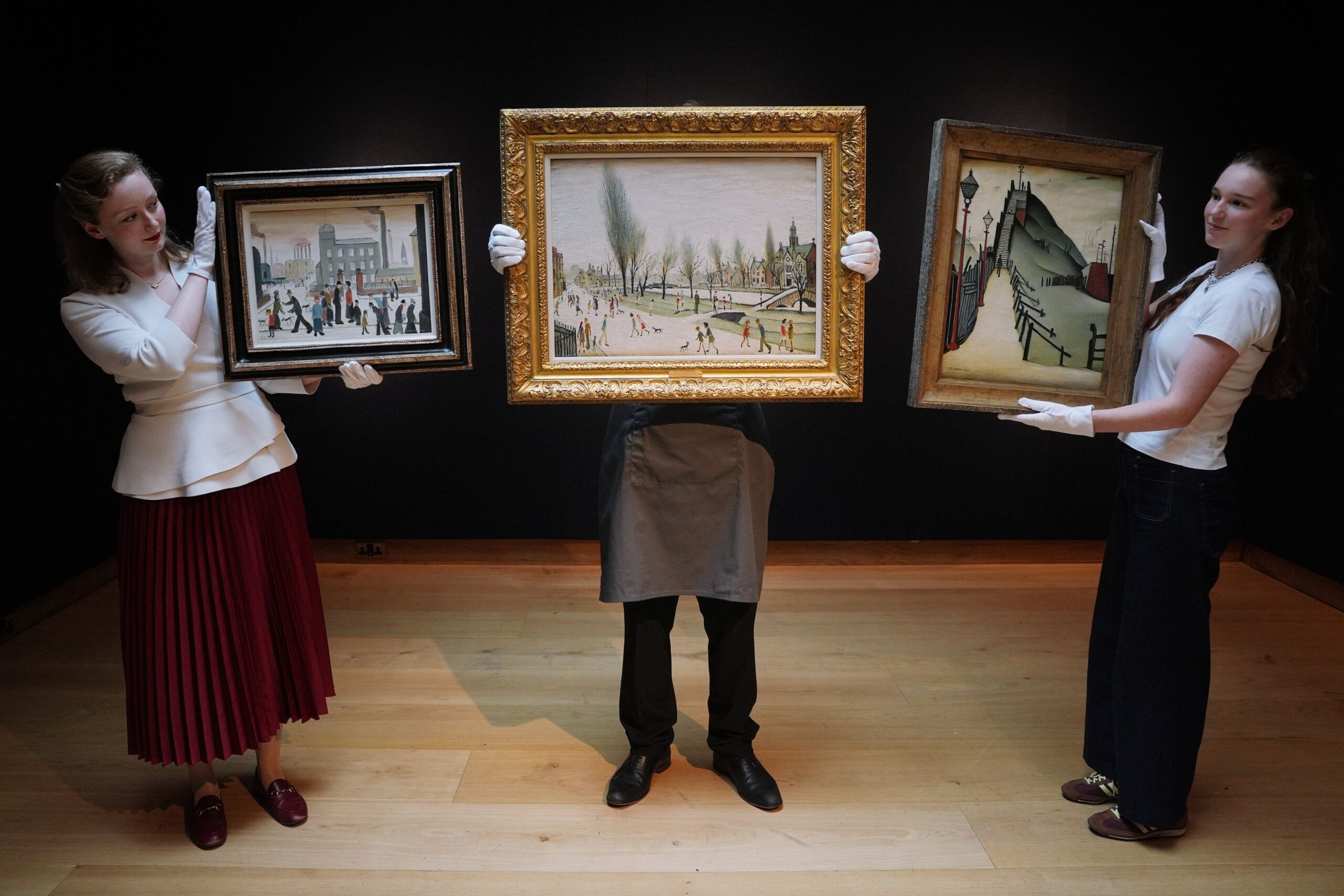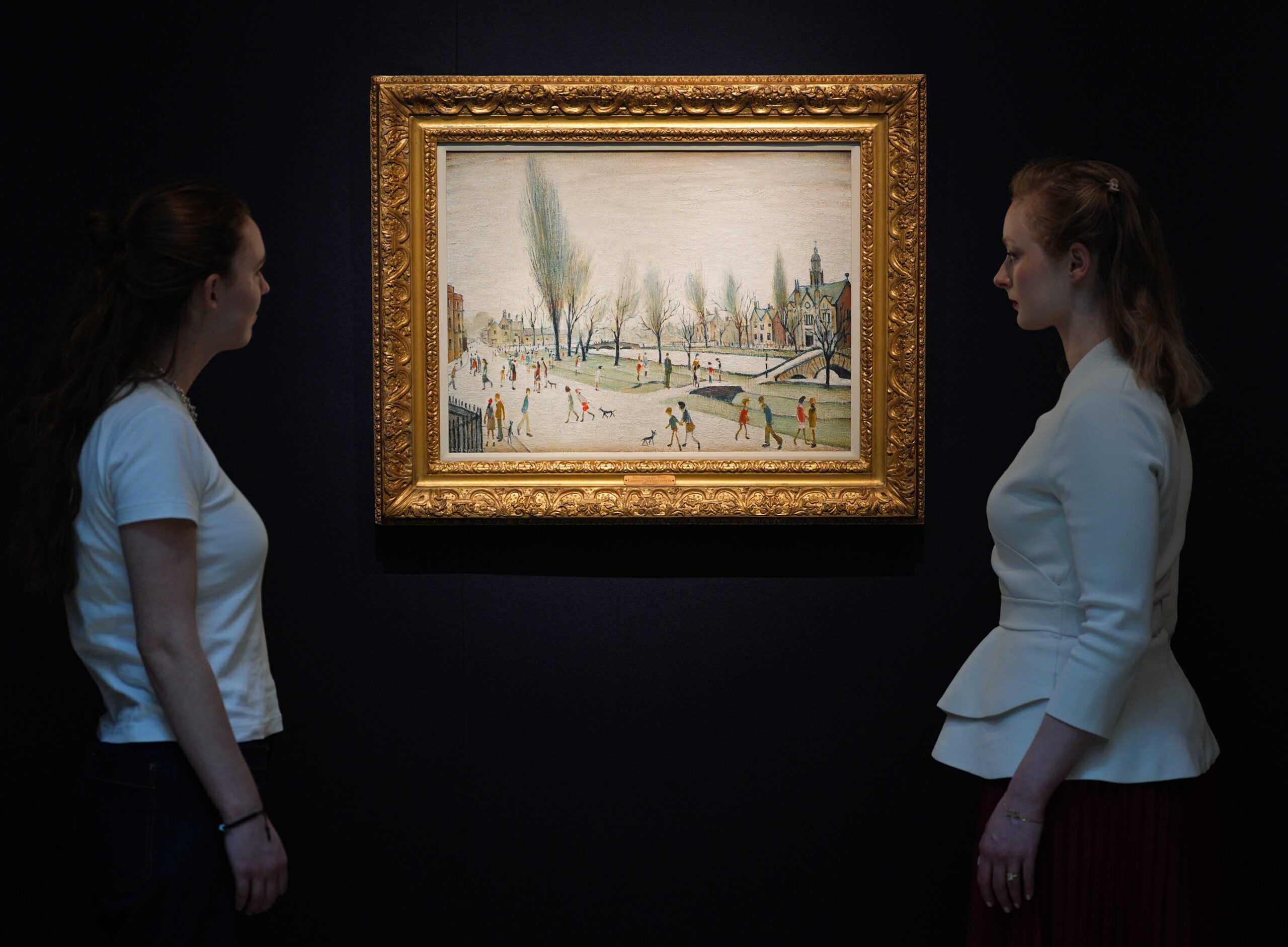Exceptional pieces by LS Lowry are anticipated to command millions of pounds at auction later this month.
Christie’s London will host its Modern British and Irish Art Evening Sale on October 22, featuring several works from private collections.
Works on offer include 1928’s Going To The Match, valued between £2 million and £3 million; Industrial Landscape, finished in 1957 and valued between £250,000 and £350,000; as well as 1947’s Bourton-On-The-Water and 1938’s A Footbridge, which are both valued at between £400,000 and £600,000.
Nick Orchard, head of modern British and Irish art at Christie’s, said: “We are delighted to be offering these paintings by LS Lowry, each coming from distinguished private collections.

“Together, they reflect some of Lowry’s most important themes, as well as rare subjects, and the chance to see them side by side is a special opportunity.”
The auction’s most valuable work, Going To The Match, is the earliest sporting painting ever realised by Lowry, and is one of only two works he ever devoted to rugby.
A 1953 work of the same name set the world auction record for the artist at Christie’s London in 2022, achieving almost £8 million as it was acquired by The Lowry in Salford, a museum dedicated to the artist’s legacy.
Orchard added: “Lowry, who was a great observer of human life, and a lover of sport, found great inspiration in the crowds that would mass to sporting events, particularly football, rugby and cricket.
“Although he also recorded the workers going to and from the factories and mills, in the sporting paintings, which are much rarer, he was able to capture the people of Manchester at rest, enjoying going to follow and cheer on their local teams.”

Bourton-On-The-Water is one of few paintings of the Cotswolds by Lowry, and is considered one of his most successful works of its type.
Orchard said: “These Cotswolds paintings are a very small and rare group, and arguably Bourton-On-The-Water is the most successful of them all.
“The Lowry in Salford has made a request that if the buyer is so inclined, they would be delighted to have Bourton-on-the-Water on loan, as it would be the only painting to represent his time in the Cotswolds on display in their museum.”
Lowry produced less work during the 1930s due to the death of his father and caring for his bedridden mother, who was prone to neurosis and depression, making A Footbridge a rare work.
